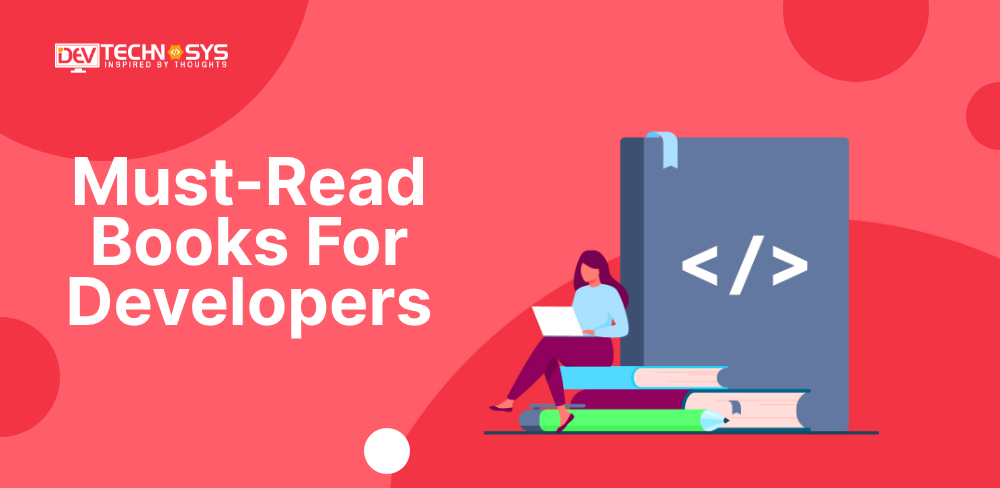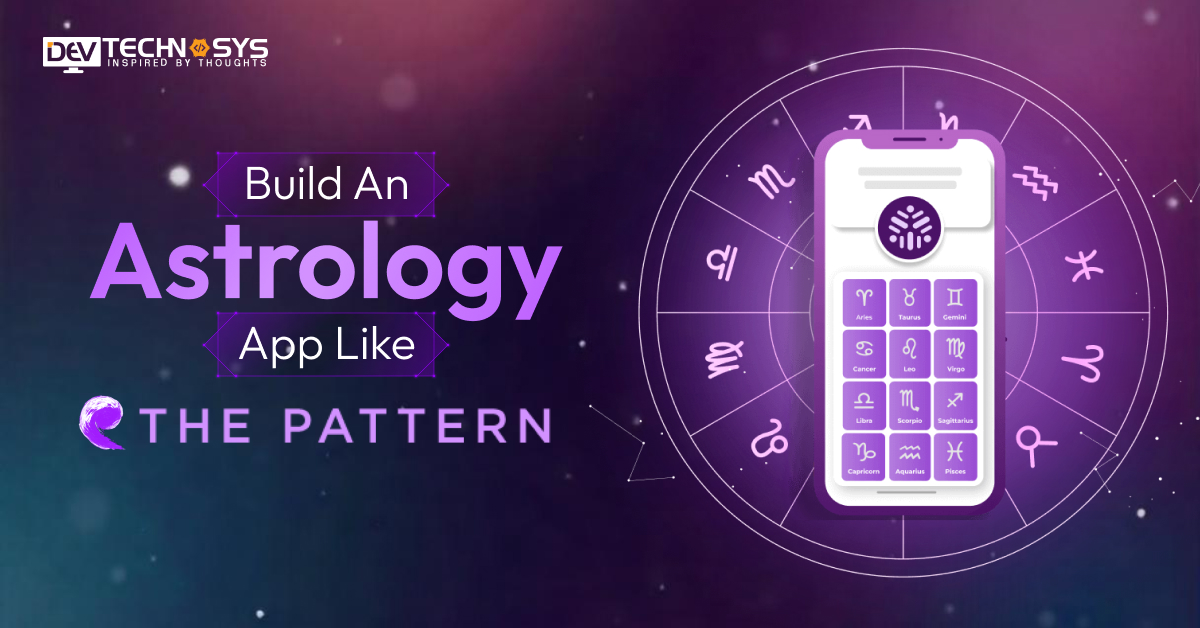Are you a developer looking for ways to enhance your skills to learn better? Then you’re in the right place. Developers and individuals from different fields must try reading books to expand their research on their projects. Unsurprisingly, your skills will be enhanced the more you learn.
Several developers working in large-scale companies asked questions from trending programming books. Companies who want to hire mobile app developers provide a massive library of must-read books for their developers to help them think wisely. So if you’re one of the developers who want to enhance your skill and learn innovation by reading books? Don’t worry. We have got you covered!
In this blog, we have gathered data on the best books for developers, which every developer must read once in a lifetime.
10 Must-Read Books for Developers
Let’s learn about the best ten must-read books for developers without wasting time. In this section, we have covered it all.
1. Clean Code: A Handbook of Agile Software Craftsmanship
A Handbook of Agile Software Craftsmanship, also known as Clean Code, is a book written by Robert C. It is vital to know that this book explains how to write clean, readable, and maintainable code.
A variety of topics are covered in the book, including design patterns, refactoring, testing, and debugging. In the book, it is emphasized that clean code is essential because it allows code to be read and maintained more effectively, making it easier to understand and work with for other developers.
It also argues that clean code can help reduce the cost of software development, as it reduces the time and effort required to fix bugs or add new features.
To achieve clean code, the book recommends following several best practices, such as:
- Giving variables and functions descriptive names
- Keeping functions short and simple
- Writing unit tests to ensure that code is correct and easy to change
- Using design patterns to create a clear and understandable structure for the code
- Refactoring code to improve its design and readability
2. Code Complete
Code Complete is a software development book by Steve McConnell and published in 1993. The book covers a wide range of topics related to software development, including design, testing, debugging, and code readability. One of the book’s central themes is writing high-quality code.
McConnell argues that good code is easy to read, maintain, and modify and is a critical factor in the success of a software project.
He provides several practical techniques for writing better code, including following consistent coding conventions, using descriptive names for variables and functions, and breaking large programs into smaller, more manageable pieces.
The book also covers the importance of testing and debugging and guides how to test and debug software effectively. McConnell discusses the importance of writing clear and concise documentation and provides tips for creating documentation that is easy to understand and maintain.
3. The Art of Unix Programming
Written by Eric S. Raymond in 2003, The Art of Unix Programming is a book about Unix programming. It is a comprehensive guide to the principles and practices of Unix programming.
It covers a wide range of topics related to the design, implementation, and use of Unix-based systems. The book is organized into three parts.
The first part is an introduction to Unix programming. Next, it covers the history and evolution of the Unix operating system and the basic principles and practices of Unix programming.
The book’s second part covers more advanced topics, including system-level programming, programming for the Internet, and distributed systems.
Finally, the third part of the book is a collection of essays that explore various aspects of Unix programming in more depth, including the design of Unix-based systems, the use of open-source software, and the role of Unix in modern computing.
Go to google and search for the best ebook reader app for android, which will provide you with a list of the best ebook reader apps where you can grab incredible programming books, including this one.
4. Coders at Work
Coders at Work is a book by Peter Seibel that consists of interviews with highly successful and influential software developers.
The book covers a wide range of topics, including the developers’ backgrounds, their experiences in the industry, and their thoughts on various aspects of software development, such as design, testing, and programming languages.
One of the book’s central themes is the importance of constantly learning and improving as a programmer. Many developers were interviewed to discuss the importance of staying up-to-date with new technologies and approaches and being open to new ideas and perspectives.
Another theme is the importance of good communication and collaboration in software development; if you’re willing to read this book but wondering where to catch up with top reading or audiobook apps.
5. The Pragmatic Programmer
The Pragmatic Programmer: From Journeyman to Master is a book by Andrew Hunt and David Thomas, published in 1999.
It is a practical guide to software development that focuses on the skills and techniques needed to be a successful programmer.
The book is organized into a series of chapters, each covering a specific topic related to software development. There are several main topics covered in the book, including:
- The importance of adopting a pragmatic, problem-solving approach to software development
- Techniques for effective communication and collaboration with other developers
- Strategies for learning new technologies and staying up-to-date with industry developments
- Tips for debugging and testing code
- Advice on how to write clean, maintainable code
- Strategies for improving productivity and efficiency as a programmer
The Pragmatic Programmer is written in a clear, concise style, filled with practical examples and exercises that help readers apply the concepts presented in the book to their Work.
6. The Psychology of Computer Programming
The Psychology of Computer Programming is a book by Gerald M. Weinberg that explores the psychological factors that influence the development of computer programs.
It was first published in 1971 and has since become a classic in software engineering. The book is divided into three main sections:
- Psychological Aspects of Computer Programming
In this section, Weinberg discusses the mental processes that programmers go through when they write code, including problem-solving, decision-making, and creativity.
He also explores the psychological factors that can affect the quality of a programmer’s work, such as motivation, attention to detail, and ability to learn.
- Social Aspects of Computer Programming
In this section, Weinberg examines teamwork and communication’s role in software development. He discusses the importance of clear communication and collaboration among team members and the challenges that can arise when working with others.
- Organizational Aspects of Computer Programming:
In this final section, Weinberg looks at the more prominent organizational factors that can impact software development, such as management style, project planning, and the structure of the development team.
He also discusses the role of computer programming in the broader context of information systems and its impact on organizations and society.
7. Prefactoring
Prefactoring is a book written by Ken Pugh and published in 2005. It is a guide to software development that focuses on the importance of writing clean, maintainable code.
In addition, it offers a set of techniques and strategies for improving code quality and reducing the time and effort required to maintain it.
The book is organized into three parts. The first part is an introduction to refactoring, and it covers the basic principles and practices of writing clean, maintainable code.
The book’s second part covers more advanced topics, including strategies for improving the readability and maintainability of code, debugging and testing code, and ways to avoid common coding pitfalls.
Finally, the third part of the book is a collection of case studies that illustrate how the techniques and strategies presented in the book can be applied in real-world software development projects.
Many experienced developers recommend reading this book by downloading the best ebook reader app for android.
8. Inclusive Design Patterns
Inclusive Design Patterns is a book by Heydon Pickering and published in 2016. The book is a practical guide to creating web designs that are accessible to users with disabilities.
The book covers a wide range of topics related to inclusive innovation, including how to design for users with different types of disabilities, such as visual, auditory, and cognitive impairments.
In addition, Pickering discusses the importance of creating designs that are easy to use and navigate for all users and provides several practical tips and techniques for doing so.
One of the book’s central themes is considering accessibility from the beginning of the design process rather than as an afterthought.
The author argues that designing for accessibility from the start makes sites and applications more inclusive and welcoming to a wider range of users, and can increase the effectiveness and efficiency of the designs.
9. A Philosophy Of Software Design
A Philosophy of Software Design is a book by John Ousterhout, published in 2020. The book is a collection of essays that explore the philosophy and principles behind good software design.
In the book, Ousterhout discusses the importance of simplicity in software design and the benefits of keeping systems small and focused.
He argues that simplicity allows developers to understand and modify systems more efficiently and leads to more reliable and maintainable software. The author also talks about the importance of modularity in software design and how it can help developers create flexible and extensible systems.
Other topics covered in the book include the role of abstraction in software design, the importance of testing and debugging, and the value of open-source software.
Throughout the book, the Author provides practical examples and tips for implementing these principles in real-world software projects.
10. The Mythical Man-Month
The Mythical Man-Month is a book by Frederick P. Brooks Jr., published in 1975. It is a classic work in software engineering and project management and is widely considered a seminal text in these areas.
The book is based on the author’s experience as the project manager for developing IBM’s System/360 line of mainframe computers in the 1960s.
The Mythical Man-Month is divided into three parts. The first part is an introduction to the concepts that the book covers, and it discusses the nature of software engineering and the challenges that software developers face.
The second part discusses the various tools and techniques used to manage software projects, including planning, scheduling, and risk management.
Finally, the third part of the book is a collection of essays that address specific issues and problems that software developers and project managers may encounter.
Takeaway!
Hopefully, you liked this blog and now have a list of the top 10 must-read books. Hence if you’re a developer, then ensure that you read all of these books before applying to a mobile app development company.
Numerous companies want to hire dedicated developers with superior knowledge of these books.
If you’re one of the people who couldn’t find these books in-store, then we suggest getting these books from ebook reader apps. By doing that, you’ll get what you want in your comfort.



























